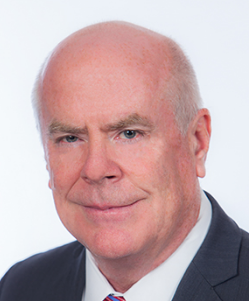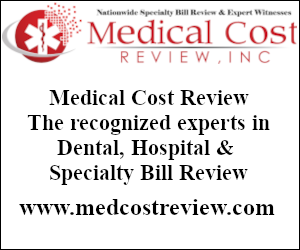Industry Insights
December 20, 2017
Richards: Avoiding Overpayment in a Workers' Compensation Case
- State: California
- - 0 shares
In California, a workers' compensation case often resembles a rusty radiator. Unnecessary leakage cost and benefit can arise from myriad pitfalls created by the complexity of the California system and the uneven playing field it often causes.

Ted Richards
For the defendant, avoiding overpayment on a workers' compensation claim begins with early investigation. Particularly if the injury is significant and/or the circumstances are suspect, a quick initial and thorough investigation is key.
According to the National Insurance Crime Bureau, approximately 33% of all claims may eventually involve elements of fraud. In California, it is estimated that workers' compensation fraud costs the state between $1 billion to $3 billion per year. As such, the first defense against overpayment on a claim involves confirmation that the claim in legitimate.
An investigation should include, if possible, in-person statements taken from the injured worker, supervisors and coworkers. Medical releases and a medical treatment history, including provider information, should be obtained. In addition, a social media search and a medical record canvas can provide early information on causation and apportionment.
Evidence of malingering brought to the attention of the primary treating physician early in a case can result in modified work restrictions, shortened temporary total disability periods, hastened return to work and reduced permanent disability.
Research clearly shows that the longer an employee remains off work, the less likely that the employee will return to work. The result of delayed return to work includes higher medical and indemnity costs, as well as supplemental job displacement costs. As such, an effective alternative/modified work program can significantly lower medical and indemnity costs, thereby avoiding overpayment on a claim.
Medical provider networks, utilization review and independent medical review, when used appropriately, provide effective cost-reduction tools. The defendant should monitor and update its medical provider network, if it has one, to ensure it contains only effective and reasonable medical providers. A high percentage of all workers' compensation costs can be traced to a very small percentage of medical providers.
Make sure that the employees are not treating with the outlier doctors who drive medical and indemnity costs. Keep these providers out of your MPN and aggressively move applicants treating outside the MPN into the network, using the expedited hearing process where necessary.
Control costs further with an enlightened use of UR/IMR. Triage requests for authorization of treatment that are clearly indicated to avoid unnecessary UR/IMR costs. These items include treatment that is less expensive than the review process and items that are needed for resolution of cases, such as diagnostic tests. Where such tests will eventually be required by the medical-legal physician, UR review only increases the costs of claim.
Use UR to control overprescription of medications. Track prior denials and object to duplicate requests for authorization submitted on treatment during the 12 months following denial so as to avoid duplicative UR/IMR costs and inconsistent UR/IMR findings.
Further, when IMR has been accepted, provide complete information to the reviewer. Finally, comply with UR and IMR deadlines to avoid litigation costs and to keep the reasonable and necessary determinations regarding requests for admissions out of the hands of the Workers' Compensation Appeals Board.
Monitor closely the panel qualified medical evaluator to avoid bad QME doctors and panels from incorrect specialities. Remove QMEs from a case where possible, even after they have been chosen, by monitoring compliance with time lines and challenging inappropriate specialities.
When appropriate, compromise and release cases even if the employee continues to work for the employer. Studies show that such settlements generally reduce claim costs no matter the occupation where the employee is not a "professional applicant," a C&R settlement with an applicant who has returned to his job generally does not result in the filing of subsequent, unwarranted claims with the same employer.
In California, where the aging process is in essence treated as an industrial injury, 1% percent causation from a work injury with an open medical award can result in 100% liability for treatment of the aging process. Often the treatment relates to expensive conditions such as degenerative disc disease, high blood pressure, diabetes, gastrointestinal symptoms and home health care.
For this reason, cutting off the tail of WC claims with a C&R may be the best approach to avoiding overpayment of medical costs, even where the injured worker has returned to work with the employer.
Finally, think outside the box about using non-submit Medicare set-asides and using professional MSA administrators. With Centers for Medicare and Medicaid Services often unreasonably increasing submitted MSAs, particularly with regard to the future cost of prescriptions, treatment UR has denied, or treatments that the applicant will never undergo, MSAs submitted to CMS often result in unreasonably high MSA demands from CMS.
CMS approval of an MSA is not required but is optional even within those parameters where CMS with review an MSA. All that the law requires is that settlements reasonably consider and account for Medicare's interests. A supported MSA analysis combined with effective MSA administration in the right case can often avoid an unreasonable set-aside.
The suggestions above for avoiding overpayment of workers' compensation costs and benefits do not all apply to all claims. But an overall system for handling claims that incorporate the above measures should reduce the dollars that a defendant pays unnecessarily.
Ted Richards is an attorney and shareholder with workers' compensation defense firm Stander Reubens Thomas Kinsey's Sacramento office. This column was reprinted with permission from the firm's client newsletter.
Advertisements
Columns
- Snyder: Trust Your Intuition 06/12/25
- Montgomery: DIR Director Reportedly Resigning 06/11/25
- Gelman: Supreme Court to Review COVID Compensability 06/06/25
- Paduda: WCRI's New Studies 06/05/25
- Moore: 187 Pages of WCRI State Stats 06/02/25
- Paduda: The Gutting of NIOSH 05/30/25
- CAAA: Left in the Smoke 05/28/25
- Gelman: Intentional Wrong? 05/27/25
- Wroten: State's Workers' Comp Crisis a Stark Contrast to National Stability 05/23/25
- Montgomery: Comp Is a Cash Cow, but Insurers Want Higher Rates 05/21/25
- Snyder: Credible Negotiation 05/19/25
- Paduda: The State of Work Comp 05/16/25
- Snyder: Two Opposing Views on Litigation Management 05/14/25
- Montgomery: City Pays Doctor $32 to Treat Injured Employee 05/12/25
- Gelman: Medical Reports Matter 05/09/25
- Montgomery: Rand Gets $300K for UR Study. What's the ROI? 05/05/25
- Salem: Respondent Who Is Not Employer May Not Owe Filing Fee 05/02/25
- Gelman: When Credibility Crumbles 04/30/25
- Montgomery: More States Move to Expand Workers' Comp PTSD Coverage 04/28/25
- Gelman: The Toll of Neglect 04/25/25
Now Trending
- Workers' Compensation News
-
Calif. Crackdown
on Tech in Workplace Could Hit…
Posted on Jun 12, 2025
-
Calif. Court
Affirms Dismissal of Tort Complaint
From School Worker Assaulted by…
Posted on Jun 5, 2025
-
Calif. Attorney
Tom Girardi Sentenced to 87 Months
for Stealing From…
Posted on Jun 6, 2025
-
Calif. Hospital
Presumption, Bill Review and Fraud
Reporting Measures…
Posted on Jun 6, 2025
-
Calif. Assembly
Passes Bills Addressing Heat
Injuries, SIBTF Claims and…
Posted on Jun 5, 2025Kimberley J Pryor says: “I tried to tell all the SIBFT doctor scheduling services that their…”
-
Calif. Court
Publishes Decision Applying
Sovereign Immunity to Tribal Health
Care…
Posted on Jun 11, 2025
-
Calif. CWCI
Holding Case Law Program Sept.…
Posted on Jun 5, 2025
-
Hawaii Supreme
Court Reinstates Worker's Claims
for Disability Discrimination,…
Posted on Jun 11, 2025
-
Maine Supreme
Judicial Court Says Worker Did Not
Timely File Petition to Restore…
Posted on Jun 6, 2025
-
Texas Defendants
in Injured Worker's Civil Suit
Can't Be Compelled to Respond to…
Posted on Jun 6, 2025
Jobs
Upcoming Events
Jun 11-13, 2025
CCWC 2025 Educational Conferen
For two decades, CCWC has assembled the key players in the workers’ compensation arena for what is …
Jun 14-28, 2025
2025 Legal Specialization Test
Course Description: This 3-part series instructed by experienced workers’ compensation attorney an …
Sep 2-4, 2025
San Diego Elevate Workers' Com
We are thrilled to announce that Early Bird registration is OPEN for ELEVATE® 2025! This year's …
Social Media Links
c/o Business Insurance Holdings, Inc.
Greenwich, CT 06836




No Comments
Log in to post a comment